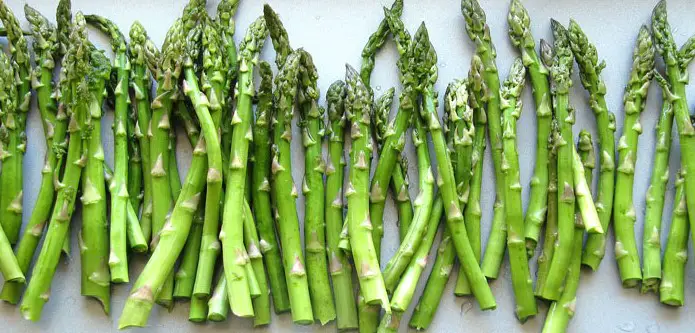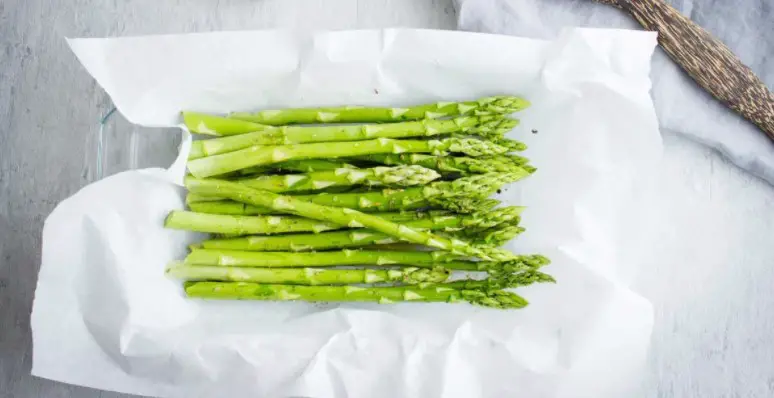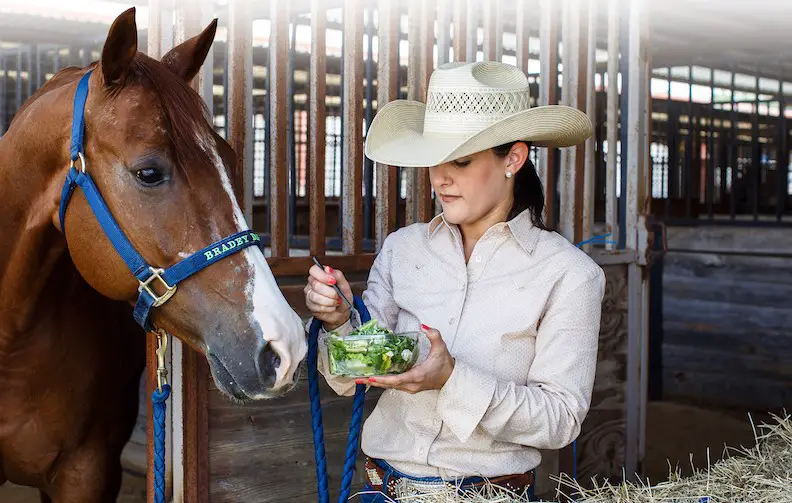If you own a horse, or you have a horse that you are taking care of, you might have wondered, “can a horse eat asparagus?” Well, yes, they can. But you should be careful to feed them in moderation.
Asparagus is healthy, but it can be difficult for horses to digest. Hence the call for moderation. We would walk you through the health benefits of the plant as well as amazing facts about this almost common plant that would blow your mind.
Amazing Facts about Asparagus

Did you know how long it takes to harvest?
Asparagus takes three years from seed to harvest. Asparagus can grow for as long as 15 years from planting.
Usually, the spears begin to shoot out in the first year, almost the size of a pencil. By the second year, it gains more strength and stamina. From this time forward, many of the spears would begin to attain maturity. A fully grown asparagus is known for the pencil-like diameter it has.
Did you know China produces the most asparagus?
China outdoes the world in asparagus production by far. Even with the reduced productivity in recent years, at the last statistics, there were still at least 57,000 hectares of asparagus in China. The next closest country is Peru, with just about 27,000 hectares in production, while Germany is next behind with 22,000 and many others. Just imagine the gap.
Asparagus was named “the food of the gods.”
It was said that Queen Nefertiti proclaimed asparagus to be the food of the gods. Think of feeding your horse something fit for gods. Isn’t that amazing?
Variations in Nutritional Value
Although coming from the same plant, there are variations in nutritional value between the green and white asparagus. The green asparagus have higher levels of nutrients such as ascorbic acid and protein, calcium, thiamin, and niacin. White asparagus generally has lower antioxidant content than green asparagus.
Urine Stink
You should know that asparagus can make your urine stink. It is caused by something called asparagusic acid, which the body converts into a smelly sulfur-containing substance.
Health Benefits of Asparagus
Asparagus comes in different colors: green, white, and purple. However, the most common colors are green and white asparagus. It is used in dishes all over the world.

In humans, the health benefits of this plant are untold. They provide essential nutrients with very low calories. They also fortify the body with essential antioxidants. Asparagus is well known to be useful in pregnancy as well. Also, it can help people lose weight and improve digestive health.
So can we say the same for horses?
Asparagus can also benefit horses with specific nutrients such as
- Fibers that aid dietary processes.
- Vitamins (A, C, E, K, B9)
- Minerals (potassium, copper, calcium, iron, phosphorus)
- Antioxidants (polyphenols and flavonoids)
How to feed your horse Asparagus
Despite the assured goods, feeding horses asparagus should be done correctly. Horses have a hard time digesting asparagus. So even though they can eat it, feeding it to them could cause digestive problems. However, if you feed it to them the right way, you could remove these threats.

Avoid Raw Asparagus
Horses find it difficult to chew and digest the stems. It is thus advisable to collect many tender parts of the plant and boil the asparagus a little bit. This way, it can be chewed and easy to digest.
Chances are that the horses could lock up their jaw from chewing if you feed them raw asparagus, which might also affect their race performance. Always remember that overcooking asparagus leads to a loss in nutritional benefits from the vegetables, so please don’t overcook the vegetables.
For those who don’t like boiling the asparagus, you can alternatively bake them to make the whole vegetable soft and easy to digest. Always remember to cut them into smaller pieces after boiling or baking them so the horses can chew and digest them easily, and don’t forget to let them cool down before feeding them to the horse.
Take time to prepare it.
The fern can cause serious abdominal pain and discomfort to your horse. Thus you would want to take the time to prepare it. You could consider baking the asparagus if you do not want to boil it.
Be observant
If you notice that your horse has lost its appetite or has diarrhea or even vomiting, that’s a sign of stopping.
Alternatively, you could feed them tiny asparagus to begin with. If you notice that it shows no side effects, then you can add more asparagus. If you observe a change, immediately stop feeding them asparagus and try to contact a veterinarian.
In Conclusion
So we can conclude by saying that feeding your horses asparagus isn’t a bad idea, but it must be done moderately. Too much of it can cause problems for him, but again you must be very observant. Asparagus overall is very healthy.
